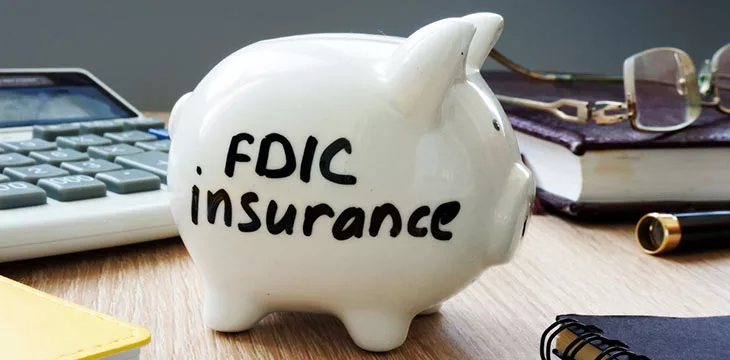|
Getting your Trinity Audio player ready...
|
The United States Consumer Financial Protection Bureau (CFPD) has issued a public advisory warning users of mobile financial applications that their deposits on such platforms may be at risk in the event of a collapse.
In its warning, the CFPB said that deposits in some financial applications may not be covered by the Federal Deposit Insurance Corporation (FDIC). Typically, the FDIC insures depositors of up to $250,000 in commercial banks and approved financial institutions, but the rise of payment service apps blurs the distinction.
Currently, over $1 billion worth of funds are stored on payment service apps without any FDIC coverage. The report added that operators encourage users to keep funds on the platform by utilizing deception involving the FDIC’s name and likeness.
Non-bank platforms go the extra mile by relying on “murky” user agreements that fail to shed light on the status of funds in the event of a collapse. The CFPB said the funds stored on these non-bank platforms are often used to invest in loans and bonds with no interest paid to the users.
“Funds stored in a payment app may be at significantly higher risk of loss for a consumer than if it is deposited in an insured bank or credit union account,” read the report. “For instance, nonbank payment apps that invest customer funds in securities or other non-deposit products expose the company to the risk of insolvency if the investments’ value declines.”
Aside from the risk of outrightly losing their deposits, consumers may face the challenge of delays in receiving their funds during the duration of the bankruptcy procedure.
The report noted that representations regarding deposit insurance eligibility on funds are sparse on PayPal (NASDAQ: PYPL) and Google Pay accounts. Funds held in Venmo and Cash App may be eligible for pass-through insurance based on the fulfillment of certain conditions, including engaging in direct deposits and registering the account with Green Dot Bank in the case of Apple Pay.
Collapses fuel concerns
Concerns surrounding FDIC insurance for depositors came to light following the collapse of centralized digital asset entities like FTX and Voyager in 2022. Things reached a crescendo with the demise of digital currency-affiliated banks such as Silicon Valley Bank (SVB), Signature, and Silvergate Bank.
The CFPB notes that the domino effect of the collapses has renewed interest in the importance of FDIC coverage for depositors. Across the U.S., state regulatory bodies are collaborating to boost the state of money transmitter laws as an added layer of protection for users of financial services.
Watch: Wallets and overlay services on the Bitcoin network

 07-02-2025
07-02-2025 





